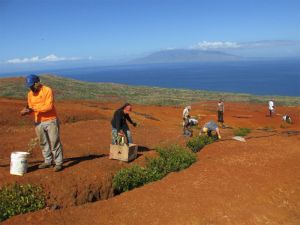Valuing climate change impacts on coral reef ecosystem services

Coral reefs provide numerous ecosystem goods and services critical to human well-being (e.g., protection from storms and floods, food, income, recreation, and cultural practices), but they are threatened by growing human pressures and climate change. Resource managers must make complex decisions when developing adaptation plans that are cost-effective and maintain coral reef functions while still allowing for human use and development. Through this project, scientists developed a decision-support tool for managers to (1) identify the areas that provide the most critical coral reef services (i.e., supply the most value to humans) as well as the areas of reef most threatened, and (2) compare the effects of reef management strategies under different climate scenarios. This tool will help local managers more efficiently and effectively protect coral reefs and the valuable services they provide.

PROJECT DETAILS
FUNDED:
FY2013
PI:
Kirsten Oleson
Assistant Professor of Ecological Economics, UH Mānoa
Co-Is:
Ken Bagstad
Research Economist, USGS Geoscience and Environmental Change Science Center
Delwyn Oki
Hydrologist, USGS Pacific Islands Water Science Center
Greg Guannel
Engineer, Stanford University/Natural Capital Project
Mehana Blaich-Vaughan
Assistant Professor, University of Hawaiʻi at Mānoa
Erik Franklin
Associate Researcher, HIMB, UH Mānoa
PingSun Leung
Emeritus professor, UH Mānoa
Leah Bremer
Assistant Specialist, UH Mānoa and Stanford University/Natural Capital Project

